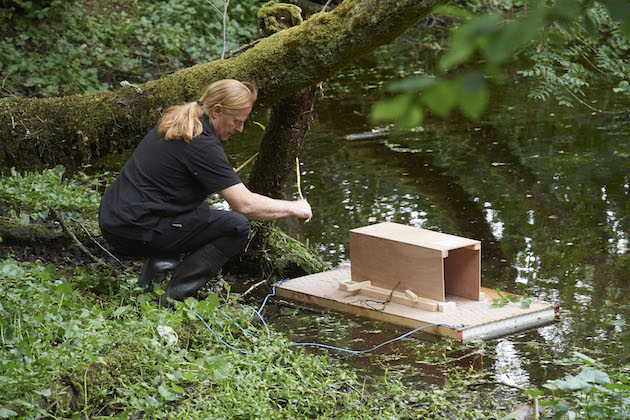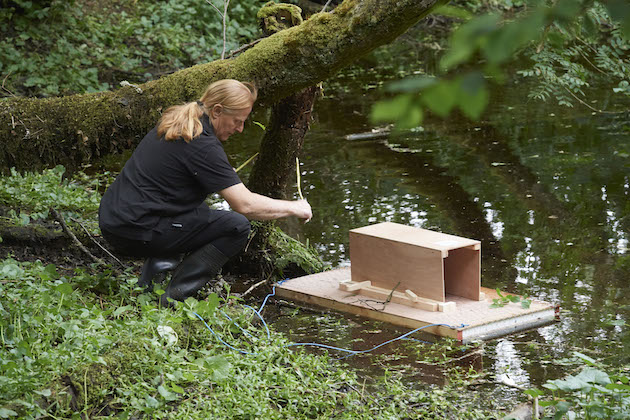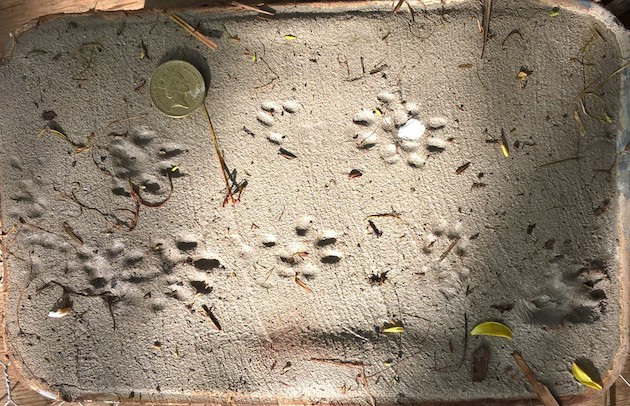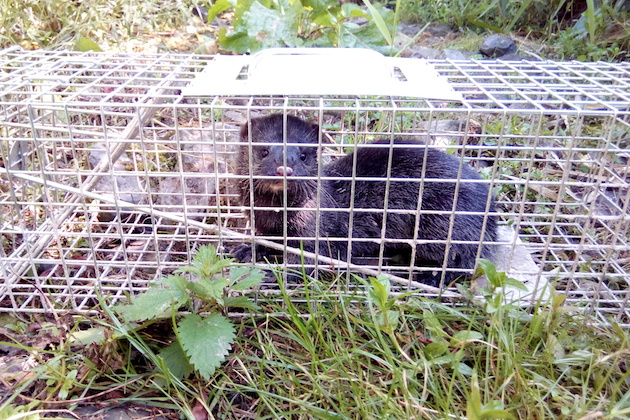Win CENS ProFlex DX5 earplugs worth £1,149 – enter here
Volunteers needed to monitor mink rafts in Scotland
 Conon River project
Conon River project

Setting up a mink raft on the Conon river
A major Scottish project to remove American mink is looking for volunteers to help run mink rafts.
Ben Seaman, with the Cromarty Firth Fishery Trust, said: “We monitor for mink presence using a network of mink rafts which are looked after by volunteers….we have gaps in the network we’d like to fill – in particular, we’d love more help along the Cromarty Firth and the Dornoch Firth. So if anyone living in Cromarty, Invergordon, Alness and Evanton areas or in Bonar Bridge, Dornoch, Loch Fleet and Golspie areas is interested in getting involved they should get in touch for more information.”

Telltale footprints in clay show that a mink has visited the raft
How mink rafts work
Mink rafts contain a clay pad hidden inside a tunnel. Volunteers check the raft for footprints every fortnight and if a mink is present a live capture trap is set so the animal can be humanely despatched.

American mink in a live capture trap
Shooting UK spoke to Vicky Hilton of Scottish Invasive Species Initiative (SISI) who warned: “Mink will eat almost anything that nests on the ground, the eggs and chicks of curlews, lapwings, oystercatchers, snipe as well as pheasants and grouse.”
Mink became established in the wild in the 1960s having escaped from fur farms and are dispersing widely across the country. Vicky Hilton continued: “Numbers are in the tends of thousands – there is no way to give an accurate figure.”
Professor Xavier Lambin, from the University of Aberdeen School of Biological Sciences, said: “The American mink is an opportunistic predator which is also a very effective coloniser of new areas. Mink can travel large distances to take up new territories (25% will travel 80km to take up a territory) and so control needs to be on a large scale to protect cleared areas from re-colonisation. ”
Anyone interested in becoming a mink raft volunteer should contact Cromarty Firth Fishery Trust biologist Ben Seaman on BenSeaman@live.co.uk
Related Articles
Get the latest news delivered direct to your door
Subscribe to Shooting Times & Country
Discover the ultimate companion for field sports enthusiasts with Shooting Times & Country Magazine, the UK’s leading weekly publication that has been at the forefront of shooting culture since 1882. Subscribers gain access to expert tips, comprehensive gear reviews, seasonal advice and a vibrant community of like-minded shooters.
Save on shop price when you subscribe with weekly issues featuring in-depth articles on gundog training, exclusive member offers and access to the digital back issue library. A Shooting Times & Country subscription is more than a magazine, don’t just read about the countryside; immerse yourself in its most authoritative and engaging publication.







